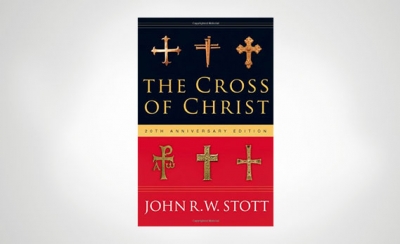Human Moral Responsibility to Sin

The following is an excerpt from the book 'The Cross of Christ' by John R. W. Stott:
But is it fair to blame human beings for their misconduct? Are we really responsible for our actions? Are we not more often victims of other agencies than free agencies ourselves, and so more sinned against than sinning? A whole gamut of scapegoats is ready at hand - our genes, our chemistry (a temporary hormonal imbalance), our inherited temper and temperament, our parents' failures during our early childhood, our upbringing, our educational and social environment. Together these seem to constitute an infallible alibi.
Perhaps no more comprehensive attempt has been made to undermine the traditional concept of personal responsibility than Professor B. F. Skinner's book Beyond Freedom and Dignity. His thesis is that 'the terrifying problems that face us in the world today' (especially the threats of population overgrowth, nuclear war, famine, disease and pollution) could all be solved by a 'technology of human behaviour'. That is, 'vast changes in human behaviour' could be secured by changes in the human environment. Man could be programmed to behave properly. What stands in the way, then? Answer: the concept of 'autonomous man', his supposed 'freedom' (in that he is held responsible for his actions) and his supposed 'dignity' in that he is given credit for his achievement' (pp.9-30. Man must have the courage to create a social environment or culture which adequately 'shapes and maintains the behavior of those who live in it' (p. 141). This is essential for the survival of humankind, which is more important than the traditional, 'flattering' concept of our 'freedom and dignity' (p. 208). To be sure, C. S. Lewis called this 'the abolition of man'. What would be abolished, however, is only 'autonomous man,... the man defended by the literature of freedom and dignity'. Indeed, 'his abolition has been long overdue' (p. 196). Peering into the future, in which man creates an environment which controls him, and so performs 'a gigantic exercise in self-control', B. F. Skinner ends his book with the words: 'We have not yet seen what man can make of man' (p. 210). It is a chilling prospect of self-determined determinism.
The human spirit rebels against it, however. The concept of 'diminished responsibility' we certainly accept, but not the total dissolution of all responsibility, except in the most extreme circumstances. The parallel between moral responsibility and legal liability is instructive at this point. Generally speaking, the criminal law assumes that people have it in their power to choose whether they will obey or break the law, and treats them accordingly. Nevertheless, responsibility for crime can be diminished, and even excluded, by certain 'excusing' conditions. In his essays in the philosophy of law entitled Punishment and Responsibility, H. L. A. Hart defines the principles as follows: 'In all advanced legal systems liability to conviction for serious crimes is made dependent, not only on the offender having done these outward acts which the law forbids, but on his having done them in a certain frame of mind or with a certain will' (p. 187). This state of mind and will is known technically as mens rea which, through a literal translation would be 'a guilty mind', really refers to the person's 'intention'. For example, the distinction between intentional and unintentional homicide, that is, between murder and manslaughter, goes right back to the Mosaic law. The principle also has a wider bearing. If a person commits an offense while insane, under duress or as an automaton, criminal liability cannot be established. Provocation may reduce murder to manslaughter. The plea of insanity has been accepted for centuries, and has been interpreted since the McNaghten Rules of 1843 as 'disease of the mind', leading to such 'a defect of reason' that the offender either did not know 'the nature and quality of the act he was doing it' or, if he did not know it, 'did not know he was doing what was wrong.'
The Rules were criticized, however, for concentrating on the ignorance of the offender, rather than on his lack of capacity for self-control. So the Infanticide Act of 1938 made provision for acts don by a woman when 'the balance of her mind was disturbed by reason of her not having fully recovered from the effect of giving birth...', and the Homicide Act of 1957 provided that a person 'shall not be convicted of murder if he was suffering from such abnormality of mind... as substantially impaired his mental responsibility for his acts...'. So, too, the British Parliament has decided that no child under ten years can be held guilty of an offence, while between the ages of ten and fourteen is has to be proved specifically that an offending child knew that what he or she was doing was seriously wrong.
Thus, legal liability depends on the mental and moral responsibility, that is, on mens rea, the intention of mind and will. But pleas based on lack of consciousness or control will always need to be precisely defined, and exceptional. An accused person certainly cannot plead his genetic inheritance or social upbringing as an excuse for criminal behavior, let alone personal negligence ('I simply wasn't thinking what I was doing'). No, generally speaking, the whole procedure of trying, convicting and sentencing in the courts rests on the assumption that human beings are free to make choices and are responsible for the choices they make.



